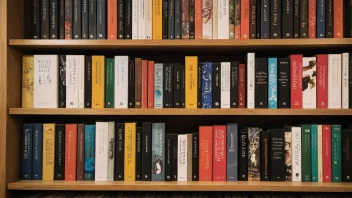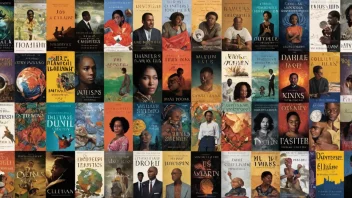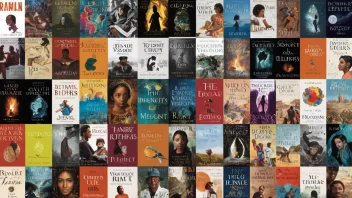Introduction
In a world where civic engagement is crucial for a thriving democracy, non-fiction literature plays a significant role in informing and inspiring individuals to take action. This article will guide you through the steps to understand the impact of non-fiction on civic engagement, how to select impactful books, and ways to integrate the lessons learned into your community involvement.
Step 1: Understand the Role of Non-Fiction in Civic Engagement
Non-fiction literature encompasses a wide range of genres including memoirs, essays, journalism, and historical accounts. These works provide factual information, personal experiences, and critical analyses of societal issues. To appreciate how non-fiction can drive civic engagement, consider the following:
- Awareness: Non-fiction exposes readers to new ideas and perspectives, raising awareness about pressing societal issues.
- Inspiration: By showcasing stories of individuals who have made a difference, non-fiction can inspire readers to take action.
- Education: Non-fiction books often provide in-depth analysis and research, equipping readers with the knowledge necessary to engage in civic matters.
Step 2: Identify Key Non-Fiction Books that Promote Civic Engagement
When looking for non-fiction that can inspire civic involvement, consider the following categories:
- Social Justice: Books like Just Mercy by Bryan Stevenson highlight the injustices within the legal system and encourage activism.
- Environmental Issues: Works such as Silent Spring by Rachel Carson raise awareness about environmental challenges and inspire collective action.
- Political Commentary: Titles like The Conscience of a Liberal by Paul Krugman offer insight into economic policies and their impacts on society.
- Memoirs of Activists: Reading personal accounts, such as The Long Walk to Freedom by Nelson Mandela, can motivate readers to engage in civic activities.
Step 3: Create a Reading List
Compile a diverse reading list that includes a mix of genres and topics. A well-rounded list will expose you to various perspectives and encourage critical thinking. Here’s how to create your list:
- Research: Look for recommendations from reputable sources such as literary journals, book clubs, or educational institutions.
- Diversity: Ensure your list represents a variety of authors, cultures, and experiences.
- Set Goals: Aim to read a certain number of books per month or focus on specific themes related to civic engagement.
Step 4: Engage with the Material
Reading non-fiction is just the beginning. To truly understand and engage with the material, consider the following strategies:
- Take Notes: Jot down key points, quotes, and personal reflections while reading.
- Discuss: Join a book club or online forum to discuss the books with others. Engaging in dialogue can deepen your understanding and inspire new ideas.
- Apply: Think about how the concepts and stories relate to your own life and community. Identify ways you can take action based on your newfound knowledge.
Step 5: Take Action in Your Community
Now that you have read and engaged with non-fiction literature, it's time to put your insights into action. Here are ways to get involved:
- Volunteer: Find local organizations that align with the issues you are passionate about and offer your time and skills.
- Advocate: Use your voice to advocate for change by writing to local representatives or participating in community forums.
- Organize Events: Host discussions, workshops, or book readings that focus on civic engagement topics within your community.
Conclusion
Non-fiction literature has the power to inspire civic engagement by raising awareness, providing education, and motivating individuals to take action. By following these steps—understanding the role of non-fiction, identifying key texts, creating a reading list, engaging with the material, and taking action in your community—you can harness the power of literature to make a difference. Remember, every book you read can be a stepping stone to becoming a more informed and active citizen.






